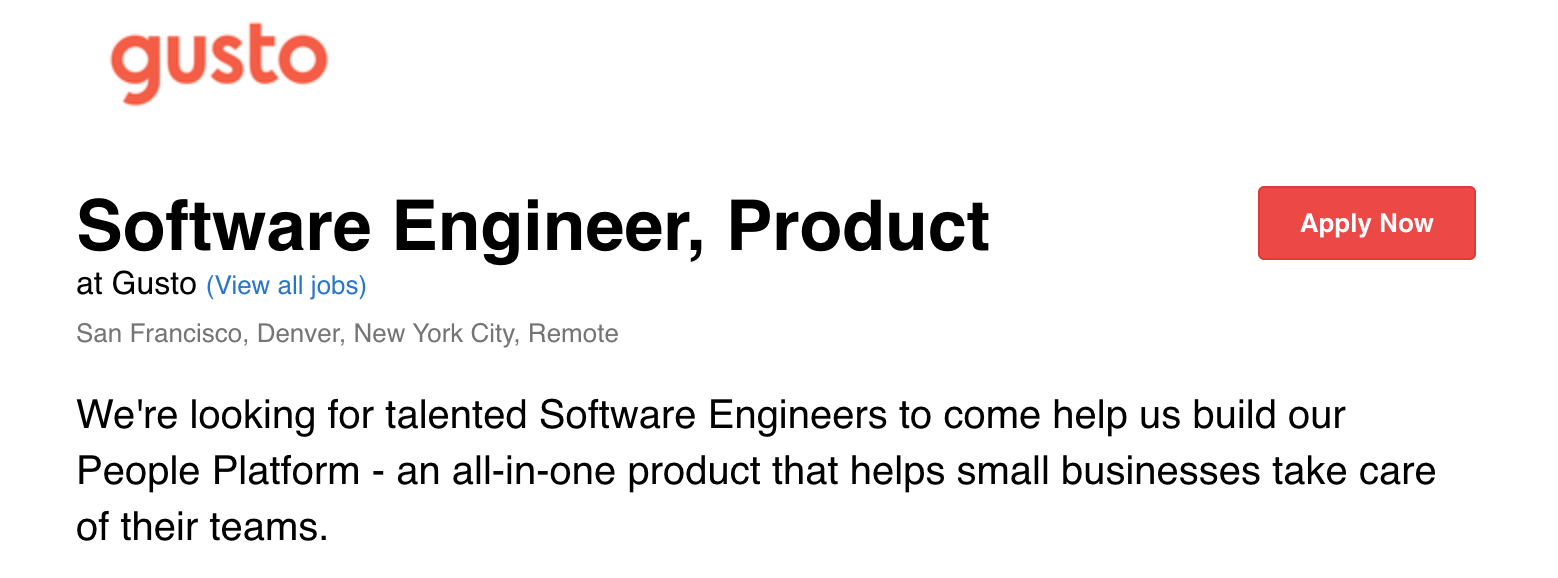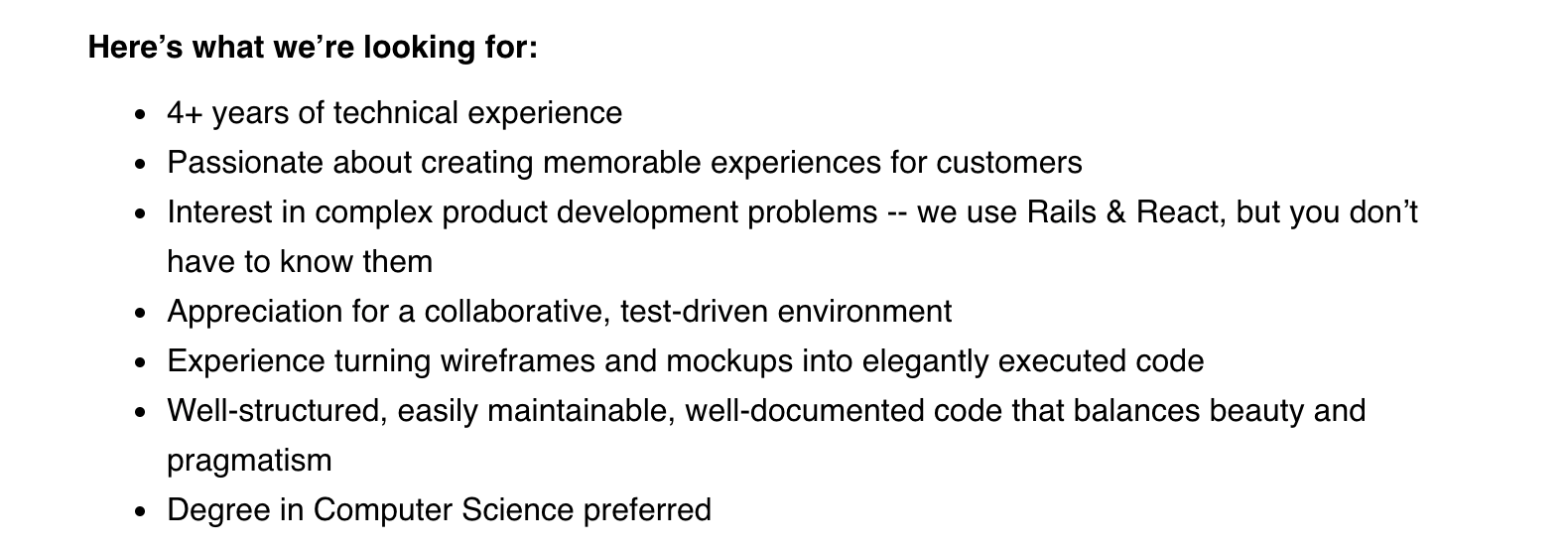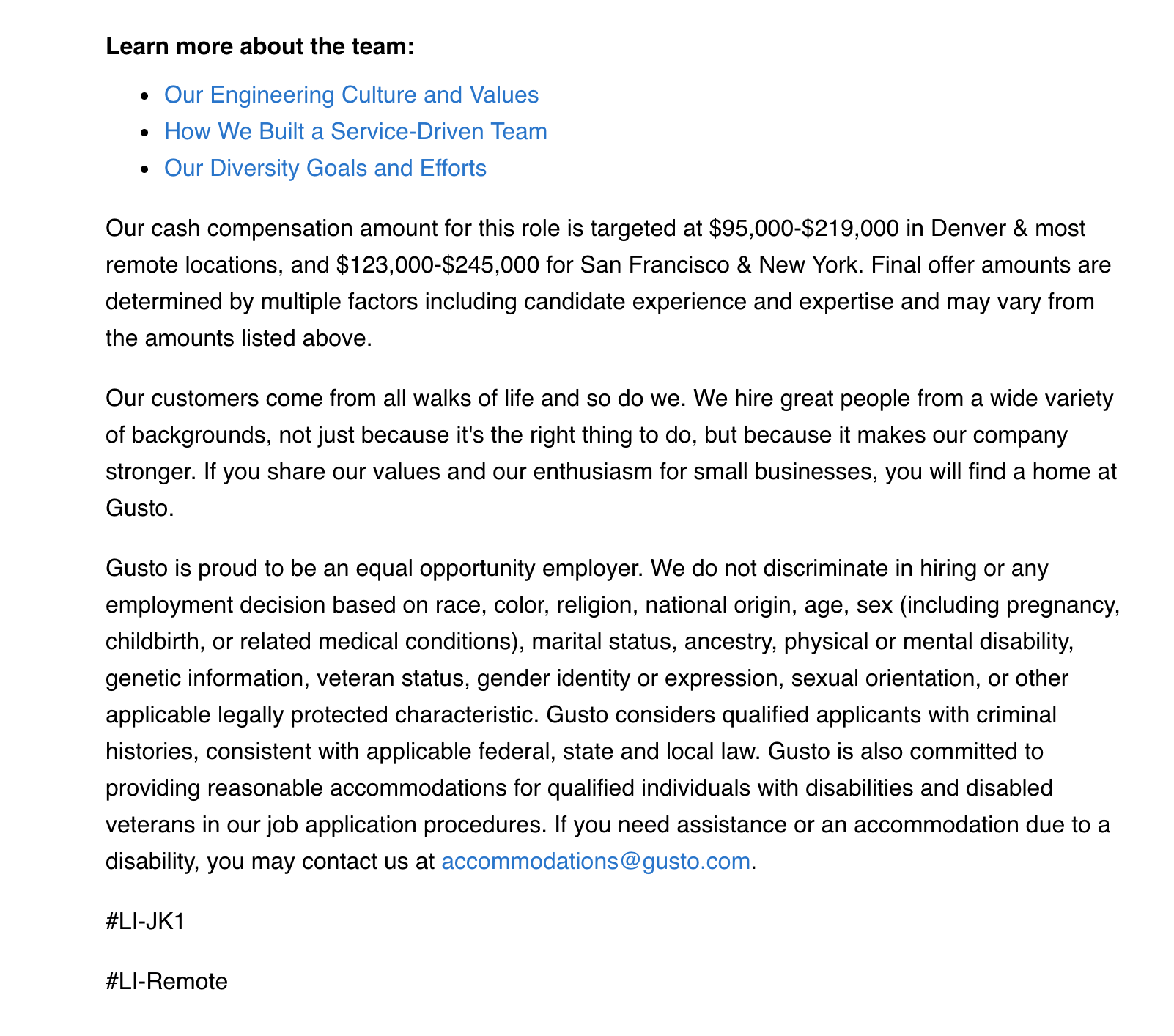Lessons in Agility (part 2)
In yesterday's post I talked about the day-to-day expectations from a software developer at Gusto. We continue today to look at how the hiring practices look for particular skills and competencies, as well as compensation practices. We use this example to look at how "Agility" could be an outcome from the people involved in the software development process.



- Technical skills: Not too much here. Just basic computer science education with about four years of technical experience. But the hiring focuses on passion to make experience memorable for customers. Again, this is a common theme. The ownership of the "customer" problem. No lip service here.
- Interest in complex product development problems - Every developer is responsible for the complex product development problem solving. What an work environment? And one does not need to know the development tools - Rails and React, if one is capable one would learn quickly. So, basically the hiring is based on attitude, learning skills, basics covered at school and some experience so the candidate is not raw.
- Collaboration and test-driven: Today's collaboration is not only through talking with your team and working with them, but is extensively through code and tests - so one needs to be test-first development driven (units, acceptance and non-functional) - this is not something one passes to a "test" silo specialist. Yes, there will be test specialist to break your work, but the primary testing is the developer. This is reflected in the other expected skills of building code out of wireframes and mockups' as well as the expectation of well-structured, well-maintainable and well-documented code. In fact, agility comes from this one factor, you write good code that is easy to maintain, your cost comes down exponentially. An area is often neglected in most organizations or these at the maximum get lip service. Quality is often add-on agenda which goes out of the window when it comes to shipping code on a particular date.
- Learning about teams in Gusto: the focus on teams is to pay team members well as seen in the pay ranges, align them to solving customer problems and providing an environment that supports diversity and inclusion in action. D&I is not something that is talked about, but is embedded in the fabric of the organization.
Tomorrow we will delve deeper into the values and principles that drive Gusto. It is interesting to see how important they are in order to support enabling as much as a single product developer in an organization. More in part 3.



